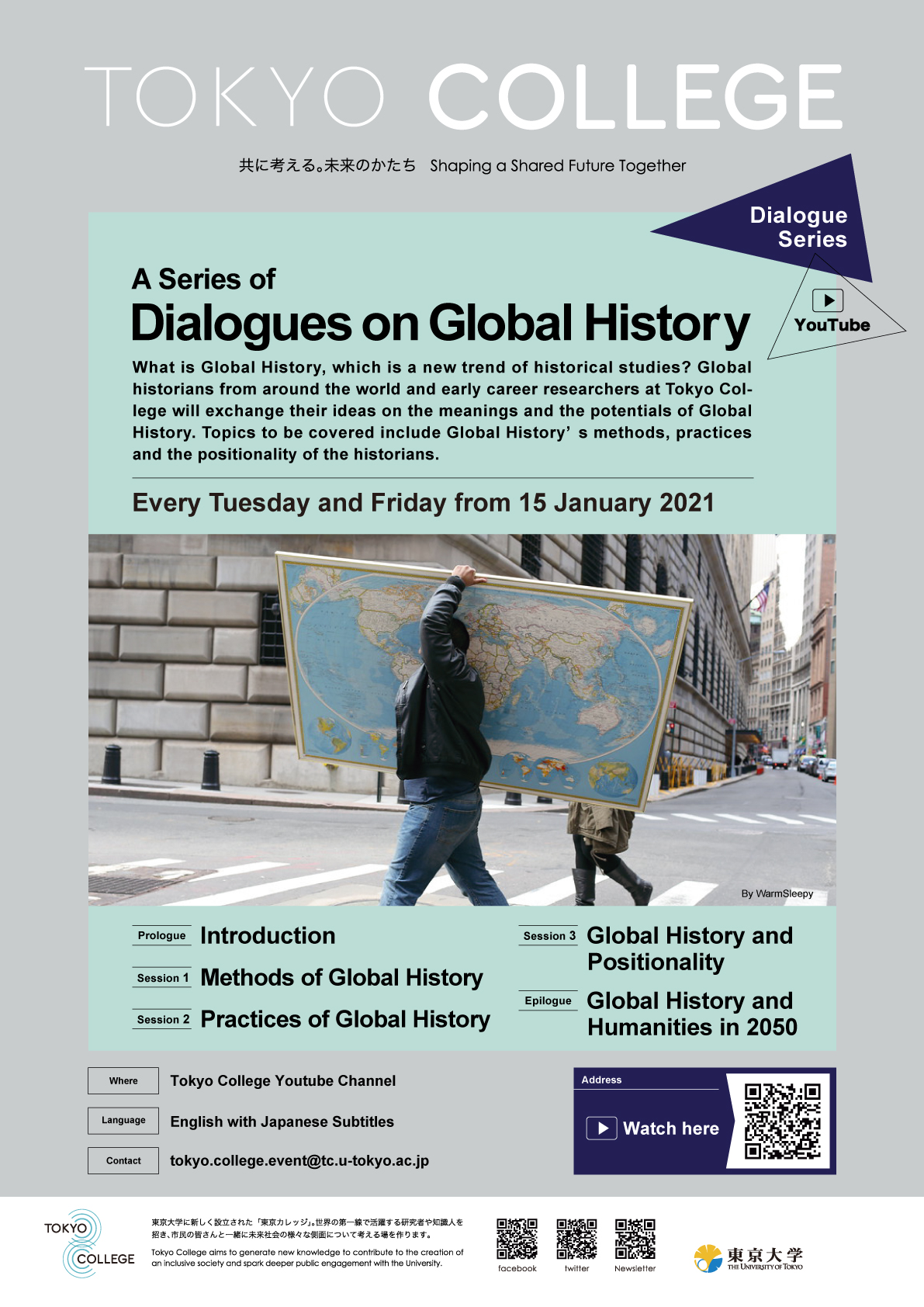A Series of Dialogues on Global History

| Date(s) | Every Tuesday and Friday from 15 January 2021 (Available from 17:00 JST) |
|---|---|
| Venue |
Tokyo College YouTube Channel (https://youtube.com/playlist?list=PLeE49Q0gSqn17IRqCa0_N109nhcXk8sZ4) |
| Language | English (with Japanese Subtitle) |
| Abstract |
What is global history, a new trend of historical studies? Global historians and junior researchers at Tokyo College exchange their ideas on the meaning and the potential of global history. Global History’s methods, effective topics and positionality of historians will be also discussed. |
| Program |
Prologue
Speaker HANEDA Masashi (Tokyo College, The University of Tokyo)
Session 1 Methods of Global History
Dialogue 1 Connected History and Comparative History Speaker Alessandro Stanziani (EHESS, Paris) In conversation with TERADA Yuki (Tokyo College, The University of Tokyo)
Dialogue 2 Transnational History Speaker Sheldon Garon (Princeton University) In conversation with Michael Facius (Tokyo College, The University of Tokyo)
Dialogue 3 Global History of Early Modern Era Speaker Maxine Berg (Warwick University) In conversation with WANG Wenlu (Tokyo College, The University of Tokyo)
Dialogue 4 Global History and Sources Speaker Antonella Romano (EHESS, Paris) In conversation with WANG Wenlu (Tokyo College, The University of Tokyo)
Session 2 Practices of Global History
Speaker Jeremy Adelman (Princeton University) In conversation with TERADA Yuki (Tokyo College, The University of Tokyo)
Dialogue 2 Politics of Global History Speaker Sebastian Conrad (Berlin Free University) In conversation with TERADA Yuki (Tokyo College, The University of Tokyo)
Dialogue 3 Global History and Gender Speaker Lisa Hellman (Bonn University) In conversation with SHAKUTO Shiori (Tokyo College, The University of Tokyo)
Session 3 Global History and Positionality
Dialogue 1 Africa and Global History Speaker Andrea Eckert (Berlin Humboldt University) In conversation with SHAKUTO Shiori (Tokyo College, The University of Tokyo)
Dialogue 2 From USSR to Russia Speaker Marc Elie (CNRS, Paris) In conversation with Maria Telegina (Tokyo College, The University of Tokyo)
Dialogue 3 Global History in China Speaker Ge Zhaoguang (Fudan University) In conversation with WANG Wenlu (Tokyo College, The University of Tokyo)
Dialogue 4 Eurocentrism and Ways to Go Beyond It Speaker Sebastian Conrad (Berlin Free University) In conversation with Flavia Baldari (Tokyo College, The University of Tokyo)
Epilogue
|
| Organized by | Tokyo College, The University of Tokyo |















